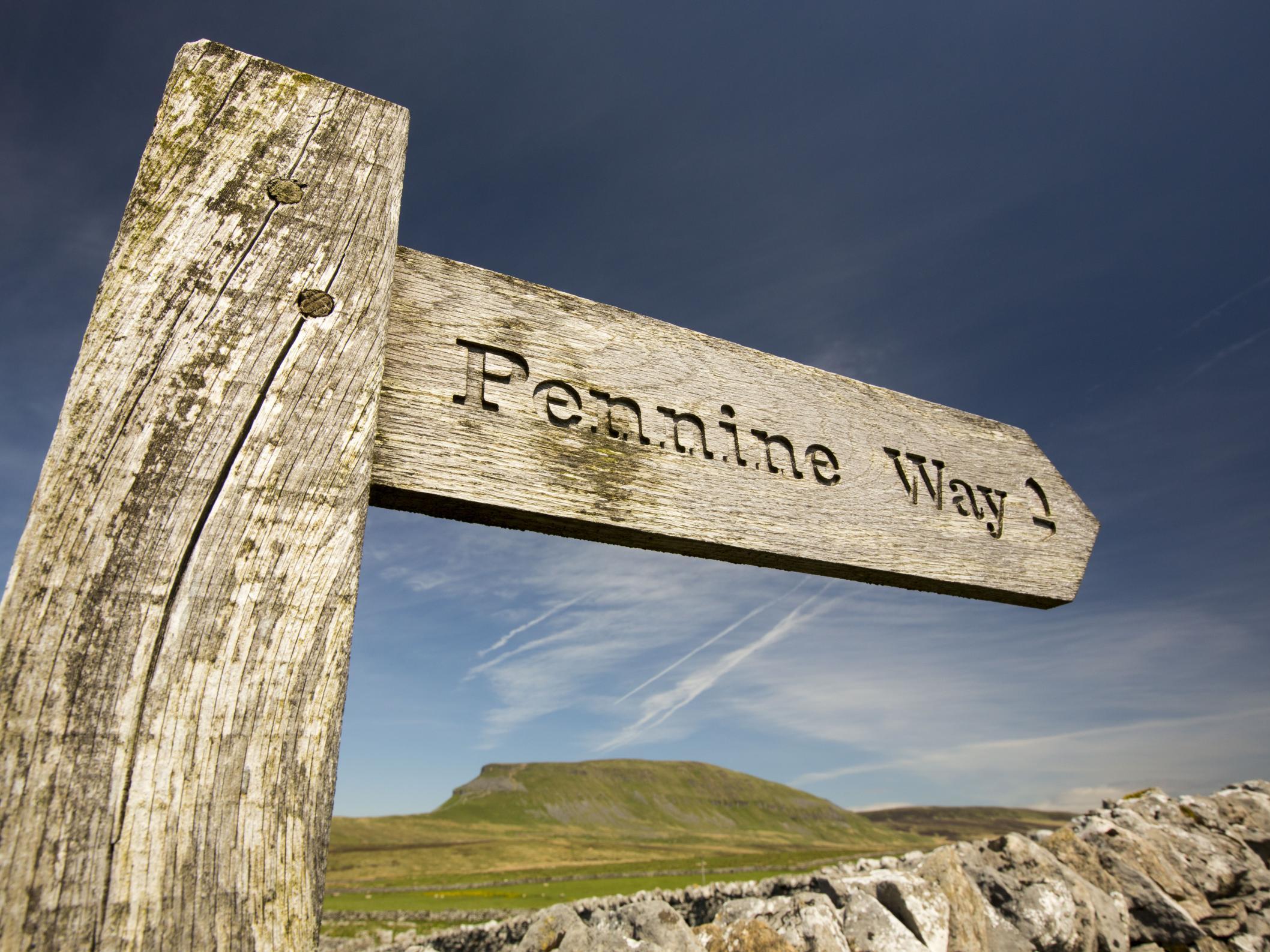American man ‘beats Pennine Way running record set 31 years ago’
John Kelly narrowly beats time set by Mike Hartley in 1989

An American man has claimed the new fastest time for running the Pennine Way, beating a record that had stood for 31 years, according to reports from the trail running community.
John Kelly said he ran the 268-mile trail in just 2 days, 16 hours and 40 minutes, narrowly eclipsing the time set by British fell runner Mike Hartley in 1989.
Mr Kelly, who came first in this year's Montane Spine Race along the same course, set off from Edale in the Peak District, Derbyshire, on 13 July and finished the route in Kirk Yetholm in the Scottish Borders early on Thursday morning.
He was greeted at the finishing line by a small group of supporters, completed the run with minimal support because of coronavirus guidelines.
Prior to the challenge, he wrote on his blog: "To ensure there are no issues with Covid-19 restrictions, please do not come out to join or to see the finish if it looks like I might break the record. I sincerely appreciate the support, but do not want to do anything that might jeopardise the effort itself, other people’s similar adventures, or most importantly anyone’s health."
Since setting up a JustGiving page for his Pennine Way run and for an upcoming endurance challenge, Mr Kelly has so far raised more than £5,500 for the Stephen Lawrence Charitable Trust, an organisation which tackles inequality.
Speaking of the charity, he said: "When looking at causes I could support, the Stephen Lawrence Charitable Trust’s mission statement resonated perfectly with me. I’ve always had a huge passion for kids, particularly those who have the cards stacked against them just by where, when, and how they happen to enter the world."
Join our commenting forum
Join thought-provoking conversations, follow other Independent readers and see their replies
Comments
Bookmark popover
Removed from bookmarks